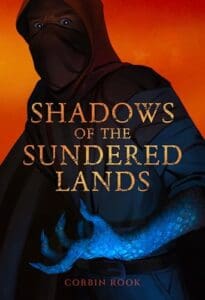Synopsis:
A teenager explores the darkness hidden within his hometown in this spellbinding supernatural thriller from bestselling author Scott Carson.
For a sixteen-year-old, a summer internship working for a private investigator seems like a dream come true—particularly since the PI is investigating the most shocking crime to hit Bloomington, Indiana, in decades. A local woman has vanished, and the last time anyone saw her, she was in the backseat of a police car driven by a man impersonating an officer.
Marshall Miller’s internship puts him at the centre of the action, a position he relishes until a terrifying moment that turns public praise for his sharp observations and uncanny memory into accusations of lying and imperilling the case. His detective mentor withdraws, friends and family worry and whisper, and Marshall alone understands that the darkness visiting his town this summer goes far beyond a single crime. Now his task is to explain it—and himself.
Lost Man’s Lane is a coming-of-age tale of terror.
Review:
‘Lost Man’s Lane’ is a novel that thrives in the uncertainty that it creates, traversing its self-inflicted wreckage with confidence and grace. Scott Carson’s latest novel is a story of in-betweens and liminality. Fittingly set in 1999, the chasm between the two millenniums, ‘Lost Man’s Lane’ is brimming with the anxieties of the time. Fears around the new year and the rapid progression of technology are rife and only enhanced by shocking unexpected tragedies such as the Columbine School Massacre. It is difficult to imagine many more challenging time periods to be a 16-year-old trying to find your place in the world, stuck somewhere in between childhood and adulthood, and that is exactly what Scott Carson presents to us with ‘Lost Man’s Lane’.
We follow Marshall Miller who following a tense interaction with a police officer ends up being the only known witness of a missing woman. Driven on by a sense of responsibility and his own inquisitive nature, Marshall attempts to unravel the mystery of the missing girl and the suspected killer. Marshall is your average teen who is no longer a child and yet not quite ready to be an adult, searching for his own identity and belonging. I thought that the ‘coming of age’ aspects of this story were done exceptionally well. A recurring motif in this story is the image of the snake shedding its skin. For those afraid of snakes (most of us) the idea of this is nauseating at best and traumatising at worst, and yet just like growing up it is a natural part of life. Carson beautifully illustrates how growing up is a transformation and an evolution of the self, but leaving your old self behind is also a sacrifice that is often wrapped up in change, regret and mourning.
The highlight of this story for me was undoubtedly the cast of characters. I typically associate King with creating such a vast network of complicated and interesting people but Scott Carson certainly achieves that. There is no one else to start with other than Kerri. Marshall and Kerri are best friends and kindred spirits. Carson absolutely nails the small intricate details of deep and personal friendships, and it was a joy to read. Scenes with these two felt like an escape, a recluse from everything going on in their world, and I think it is fair to say they both felt the exact same way.
I could be here all day talking about the different characters in this story, genuinely, but one who I think deserves some love who I could imagine going under the radar a bit is Marshall’s mother Monica. It is often easy to scorn the responsible mother who inhibits their teenage child’s urges to act like an adult, but I particularly enjoyed the nuance in their mother-son relationship, built on the absence of a father figure. The love is obvious between the two, but an underrated aspect of their relationship is the respect and open communication they have with each other. Of course, Monica is protective of her only son but she is also fair and open to discussion, giving Marshall the license to grow into adulthood on terms that they both agree on. It was refreshing to see a mother-teenage son relationship not constantly taut with the growing pains of becoming an adult and finding independence.
As great as the characters of this story are, I would be remiss in reviewing a mystery thriller without at least touching on the mystery aspect of the story. I have seen comparisons between this book and ‘IT’, and it is easy to see why with how Carson masterfully manifests his coming-of-age narrative through the backdrop of a small American town with a complicated history. I found the mystery to be more compelling than the town’s history, but I ultimately had no complaints. Carson’s novel is rife with anxiety and this only acts as petrol to the flame whenever the story sets alight, and it most certainly does.
‘Lost Man’s Lane’ shows that although growth and pain go hand in hand, heart will always be the greatest antidote. In a story wrought with so much uncertainty and anxiety, its defining characteristic is the connections that bind us. Scott Carson’s novel takes a stand for love, understanding and acceptance when faced with the great unknown, a message that, regardless of our age, we all need to hear sometimes.
A massive thank you has to go out to Fanfiaddict’s own Anna Dupre who sent me a copy of this great story! Read her own fab review here








Leave a Reply